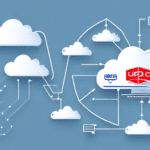ShipStation vs Sendcloud: Comprehensive Comparison for Your Shipping Needs
In today's competitive eCommerce landscape, efficient shipping processes are crucial for business success. Shipping software plays a vital role in streamlining operations, reducing costs, and enhancing customer satisfaction. This article provides an in-depth comparison between two leading shipping software platforms, ShipStation and Sendcloud, to help you determine which solution best fits your business requirements.
Introduction to Shipping Software
Shipping software is an essential tool for businesses engaged in eCommerce, enabling them to manage their shipping and fulfillment processes efficiently. According to a Statista report, global eCommerce sales are projected to reach $6.54 trillion by 2023, underscoring the importance of optimizing shipping operations.
These software solutions automate tasks such as order management, label printing, and shipment tracking. They also integrate with various shipping carriers, allowing businesses to compare rates, choose the most cost-effective options, and provide customers with real-time tracking information. By leveraging shipping software, businesses can save time, reduce errors, and enhance the overall customer experience.
Overview of ShipStation
ShipStation is a cloud-based shipping platform designed to simplify and automate the shipping process for businesses of all sizes. It offers a comprehensive suite of features that integrate seamlessly with numerous eCommerce platforms and shipping carriers.
Key Features
- Integration with over 150 shipping carriers, including USPS, FedEx, UPS, DHL, and more.
- Batch processing for handling multiple orders and labels simultaneously.
- Customizable shipping rules to automate decision-making based on predefined criteria.
- Advanced shipping rate comparison to identify the most cost-effective options.
- Real-time order tracking and management for enhanced visibility.
- Inventory management for up-to-date stock tracking.
- Automated customer notifications to keep customers informed about their shipments.
Benefits
- Streamlined Operations: Automates repetitive tasks, allowing businesses to focus on growth and customer engagement.
- Extensive Integrations: Supports integration with major eCommerce platforms like Shopify, WooCommerce, and Amazon.
- Real-Time Tracking: Provides up-to-date tracking information, enhancing transparency and customer trust.
- Customizable Rules: Reduces errors and saves time by automating shipping decisions based on specific business needs.
- Scalable Pricing: Offers various pricing plans to accommodate businesses of different sizes and volumes.
Overview of Sendcloud
Sendcloud is a European-based shipping platform tailored to help businesses manage their shipping and fulfillment processes efficiently. It emphasizes ease of use and integration with popular eCommerce platforms.
Key Features
- Integration with over 25 shipping carriers, including DPD, DHL, and PostNL.
- One-click label printing and automatic order dispatching.
- Automated tracking updates for customers with seamless eCommerce platform integration.
- Flexible shipping rules and an intelligent shipping algorithm to optimize shipping choices.
- International shipping options with tax management to simplify cross-border sales.
- Comprehensive inventory and returns management.
- Integration with major eCommerce platforms like Shopify, Magento, and WooCommerce.
Benefits
- Ease of Use: User-friendly interface and mobile app make managing shipments straightforward.
- Competitive Rates: Offers competitive shipping rates and a variety of carrier options to suit different needs.
- Automated Notifications: Keeps customers informed with automated tracking updates, enhancing the customer experience.
- International Capabilities: Simplifies international shipping with robust tax and duty management features.
- Flexible Integration: Easily integrates with multiple eCommerce platforms, accommodating diverse sales channels.
Feature Comparison
Both ShipStation and Sendcloud offer a robust set of features designed to optimize shipping processes. Here's a detailed comparison:
| Feature | ShipStation | Sendcloud |
|---|---|---|
| Number of Shipping Carriers | Over 150 | Over 25 |
| eCommerce Platform Integrations | Shopify, WooCommerce, Amazon, eBay, and more | Shopify, Magento, WooCommerce, and more |
| Batch Processing | Yes | Yes |
| Shipping Rate Comparison | Yes | Yes |
| Order Tracking | Real-time tracking updates | Automated tracking updates |
| Inventory Management | Yes | Yes |
| Returns Management | No | Yes |
| Automated Customer Notifications | Yes | Yes |
| User Interface | Intuitive and polished | User-friendly and accessible |
| Pricing Plans | Starting from $9/month | Starting from €29/month |
Pricing and Plans
Understanding the pricing structures of shipping software is crucial for budgeting and scalability. Here's a breakdown of the pricing plans for both platforms:
ShipStation Pricing
- Starter Plan: $9/month for up to 50 shipments per month.
- Basic Plan: $29/month for up to 500 shipments per month.
- Professional Plan: $49/month for up to 1,500 shipments per month.
- Enterprise Plan: Custom pricing for businesses with high shipping volumes, offering advanced features and priority support.
ShipStation also provides discounts for annual billing, enhancing cost-effectiveness for long-term commitments.
Sendcloud Pricing
- Starter Plan: €29/month for up to 500 shipments per month.
- Growth Plan: €59/month for up to 2,500 shipments per month.
- Pro Plan: €119/month for up to 10,000 shipments per month.
- Enterprise Plan: Custom pricing tailored to businesses with extensive shipping needs.
Sendcloud offers annual billing discounts, providing savings for businesses opting for longer-term subscriptions.
Pros and Cons
Evaluating the strengths and limitations of each platform can guide businesses in selecting the most suitable shipping software.
ShipStation
- Pros:
- Extensive integration with over 150 shipping carriers.
- Wide range of eCommerce platform integrations.
- Advanced and customizable shipping rules.
- Real-time tracking updates enhance transparency.
- Scalable pricing plans accommodate growing businesses.
- Cons:
- Higher cost for advanced features compared to some competitors.
- May have a steeper learning curve for new users.
Sendcloud
- Pros:
- Competitive shipping rates and a variety of carrier options.
- User-friendly interface with easy navigation.
- Comprehensive returns management simplifies post-purchase processes.
- Automated customer notifications improve customer experience.
- Solid international shipping capabilities with tax management.
- Cons:
- Fewer shipping carrier integrations compared to ShipStation.
- Limited customization options for shipping rules.
- Pricing may be higher for businesses with lower shipment volumes.
Which Shipping Software is Right for Your Business?
The choice between ShipStation and Sendcloud hinges on your business's specific needs and priorities:
- Choose ShipStation if:
- You require extensive carrier integrations and support for a wide range of eCommerce platforms.
- Advanced customization and real-time tracking are essential for your operations.
- Your business is scaling rapidly and needs a versatile, scalable solution.
- Choose Sendcloud if:
- You prioritize ease of use and a user-friendly interface.
- Competitive shipping rates and efficient returns management are top priorities.
- Your business operates primarily within Europe and requires robust international shipping support.
Conclusion: Making the Right Choice for Your Shipping Needs
Both ShipStation and Sendcloud offer robust solutions tailored to different business needs within the eCommerce shipping landscape. ShipStation stands out with its extensive carrier integrations and advanced features, making it ideal for businesses seeking comprehensive shipping management. On the other hand, Sendcloud provides a user-friendly interface and strong international shipping capabilities, catering to businesses focused on efficiency and customer satisfaction.
Ultimately, the best choice depends on your business size, shipping volume, specific feature requirements, and budget. Assess your operational needs, consider scalability, and take advantage of trial periods offered by both platforms to determine which shipping software aligns best with your business objectives.






















